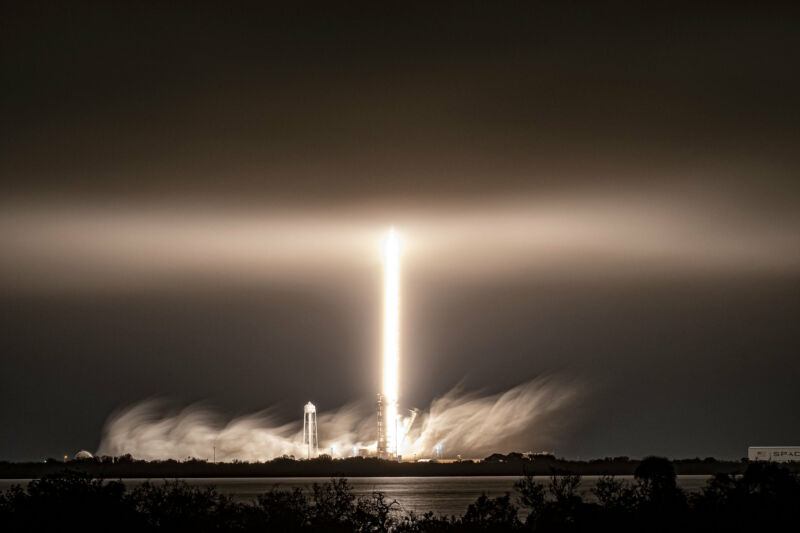A Falcon 9 rocket making an uncontrolled reentry looked like an alien armada

Enlarge / A Falcon 9 rocket launches from Kennedy Space Center on March 4, 2021. Its second stage returned to Earth three weeks later. (credit: SpaceX)
A little more than three weeks ago a Falcon 9 rocket launched from Florida's Kennedy Space Center, carrying a payload of 60 Starlink satellites into low-Earth orbit. It was the first of four such missions flown this month by SpaceX.
The entire mission was nominal, except for a problem with the rocket's second stage. Typically, within an orbit or two of launching, the Falcon 9 rocket's Merlin vacuum engine will relight and nudge the second stage downward so that it harmlessly reenters Earth's atmosphere into the Pacific Ocean.
Ummm... just caught this flying over my home in SW Portland. pic.twitter.com/CvQJwvWsyj
— Vince LaVecchia (@vincelavecchia) March 26, 2021
However, after this launch there was not enough propellant to ignite the Merlin engine and complete this burn. So the propellant was vented into space and the second stage set to make a more uncontrolled reentry into the atmosphere. In this case, the Falcon 9 upper stage still comes back, because, when it released the Starlink satellites, the vehicle was orbiting Earth at an average altitude of about 250 km. This high above the Earth it was still susceptible to drag from the thin wisps of our planet's upper atmosphere.
Read 5 remaining paragraphs | Comments
source https://arstechnica.com/?p=1752372